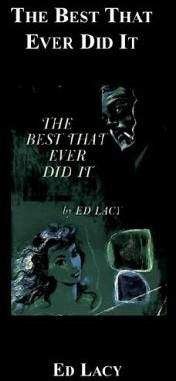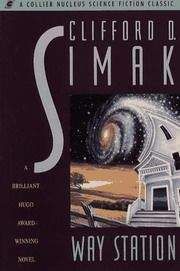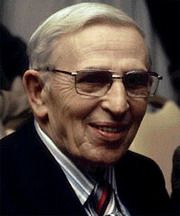Ed Lacy - The Best That Ever Did It
На сайте mybooks.club вы можете бесплатно читать книги онлайн без регистрации, включая Ed Lacy - The Best That Ever Did It. Жанр: Прочее издательство неизвестно,. Доступна полная версия книги с кратким содержанием для предварительного ознакомления, аннотацией (предисловием), рецензиями от других читателей и их экспертным мнением.
Кроме того, на сайте mybooks.club вы найдете множество новинок, которые стоит прочитать.

Ed Lacy - The Best That Ever Did It краткое содержание
The Best That Ever Did It читать онлайн бесплатно
Al asked questions about passports, whether Turner ever had taken one out, and the Washington man said he would check.
A simple idea began to take shape in my simple noggin. The word “simple” was the key to everything... the names Brown, Smith, and the bartender said Brown's first name had been something like Tom or Dick or Harry. It wasn't any accident that Brown hung around an ordinary two-bit bar like the Grand Cafe, got into conversation with fellows who had simple lives, like Andersun, Irving Spear.
I asked the State Department man, “While you're checking on Turner, see if a passport has been issued to an Irving Spear and to a man named Smith—his picture will look like Spear's.”
“Spear—that's Andersun's sister's boy friend,” Franzino put in.
“I can check by phone,” the State Department man said. “What's the angle?”
“Let's check first—I'm not sure it is an angle—yet.”
“I don't like playing quiz games on a Sunday,” the State Department man said. “What's on your mind?”
“If this is a passport ring, then there should be one in the name of Spear, because a fellow named Smith talked to him once in the bar. You see, this Brown got into a beer argument with Andersun about the block, the old neighborhood. Claimed he'd been born there. That's the can opener for us.”
I collected an assortment of blank looks. Al Swan smiled at everybody, said, “Slow, Barney boy. Explain it to us again—in small words.”
“Way I see it,” I said, wondering if I was making a fool of myself, “is Brown learned from all this small talk where and when Franklin Andersun was born, name of his folks. Brown then gets a birth certificate as Franklin Andersun; do that by mail once he has the information, then rents a room under the name of Andersun. His buddy, Smith, is doing the same thing with the info he picked up in the bar from Irving Spear. With a birth certificate, a couple of lousy pictures—his nose, for example, looks out of shape, probably stuffed with cotton, and everybody said his hair was too red, so that was a dye job. Okay, with the birth certificate, the pictures, and Smith as a friend and witness under the name of Spear, Brown plunks down ten bucks, makes out a passport application, and in due time gets the passport, via registered mail, at his room. At a different address, with Brown as his witness, Smith gets a passport in the name of Irving Spear. The lads then chuck their rooms, dye their hair another shade, find a new bar, and start all over again.” I smiled at one and all, as if I'd explained everything.
Franzino broke the silence with, “Wouldn't they be recognized when applying for a passport the second time?”
The State Department man shook his well-brushed head.
“We have two offices in New York City, others in Washington, Philadelphia, all over the country. Be simple and comparatively safe for them to try this five or six times, meaning they end up with a dozen passports, besides their own. Let me call Washington, check on Turner, Smith, and Spear.”
We were sitting around the office of the detective squad, and the State Department man left to make the call as Al said, “Racket sounds too simple.”
Franzino ran a finger along the beard stubble on his lean jaw. “Simple rackets are always the ones that work.”
“If Andersun was in on a big deal like this, we'd have found some trace of it,” Al said.
One of the FBI's asked, “And if this Brown has the passport, why should he kill Andersun months later?”
Before I could answer, Franzino said, “The thing is, Andersun wasn't in on any deal. The lead we've overlooked was the story in the papers about Andersun planning to use the prize money for a trip to Paris, which meant...”
“Why Brown and Smith operated in bars like the Grand Cafe,” I cut in, determined to at least explain my own idea, “was because there was little chance of any of the boys in the bar ever taking a trip out of the country. Once Andersun applied for a passport, the State Department would investigate, and the whole deal would be cooked. They had to stop the real Andersun, and they did it with a bullet.”
The State Department man returned. There was a passport issued to an Irving Spear, none to Turner, and they were checking all the Smiths and Browns. A photostat of Spear's application was being flown in, and handwriting and photo experts were checking Brown's face and writing against other recent passports.
There wasn't anything to do for a couple of hours, and I had some coffee with Al. Then we drove over to the Turner apartment. Betsy and the kid were mixed up in cloth and patterns, and we were in the way. The last thing Ruthie wanted was to leave, so I said I'd phone later, maybe take them both out to supper, and after that—no matter what—Ruthie was going home.
As we left, Al gave me an evil grin, croaked, “What a domestic scene—mamma, poppa, and baby,” and started to whistle “My Blue Heaven,” and I told him to shut his corny trap. We went for a ride and I put on some speed—with Al's badge beside me I didn't have to worry about a ticket. Al insisted his Caddy could outrun my car, but backed down when I offered to bet him ten bucks. I drove back to the station house and we waited around some more, before the Spear application came in.
Brown's buddy, Smith, was six feet tall, weighed 196 pounds, had a mole on the right cheek. From the picture he looked like a handsome, distinguished young man, but his bald dome made him look older than thirty-four. One of the FBI lads said the mole was probably make-up and his head had been shaved for the picture. Franklin Andersun had signed as his witness, and Franzino said, “These jokers thought of everything—there's some attempt to disguise his handwriting here. Tomorrow I'll have my men check every passport photo shop in the city with these copies. See what we come up with. Of course we'll have every dock and airfield watched, in case they try to leave the country.”
“A passport is good for two years,” one of the FBI men said. “They can lay low till the summer, when the travel rush is on.”
“Another possibility—they could have skipped,” the State Department man said. “They could have gone to Canada, Mexico, some of the West Indies—without passports—then use them shipping out down there.”
Franzino sighed. “Or they could have taken a plane out the same night of the murder, for all we know. Hope this isn't another blank wall.”
Al shook his head. “I got a hunch they're still here, playing it too cool. Also got a hunch this is it. Like shaking out a tangled fishing line—once you get the right line, it all straightens out.”
There wasn't a thing to do but wait till Monday morning, while Washington checked, so we all knocked off for the day. I watched the cops line up before the desk as they were turning out a platoon, then I stopped into Franzino's office, asked, “How about releasing Louise now?”
“What did that whore do for you?” he growled, but had them both in his office within a few minutes. She looked bad, her face puffy and strained from worry and lack of sleep. Cliff looked okay, hair as slickly combed as ever. Franzino told them, “I'm letting you go as a favor to this big cluck. There's two conditions—break either of them and I'll toss you back in the can, lose the key. Don't move or become hard to find, in case I want to get in touch with you. And no hustling. Soon as this case is over, both of you get the hell out of my precinct.”
Louise and Cliff hurried out and as I started after them to explain, Franzino called me back. He pulled his bent medal out of the drawer. “I'm afraid to hammer this—might crack. Think you can straighten it out again, muscle head?”
I got it fairly straight.
CHAPTER 6
WHEN IT looked like we were really closing in, we fell flat on our collective faces. Not a thing happened Monday or Tuesday, except New York had one of those unexpected muggy heat spells. The air seemed to vibrate with heat waves, and as usual, the heat knocked me out. The passport photo places had never seen either Brown or Smith, and the State Department was “reasonably” sure nobody looking like either of them had used a passport since the murder.
On Wednesday Al Swan called for me and we went down to an office in the Federal Building on Foley Square. Franzino was there, along with two big apples from the Police Department, and an assortment of Feds. Except for me and Franzino, everybody was dressed like he'd been torn out of the men's fashion page of Esquire.
I was in fast company and I sat and listened. A State Department man made a short speech that added up to one thing —we were still no place. They'd found two other false passports, one issued to a light tan Negro named Alvin Hunt of Patterson, New Jersey, and one to a Richard Cohen of Brooklyn. Neither of these men had ever made an application for a passport; both vaguely recalled bar conversations some months ago about where they were born. In the passport pictures, Brown looked swarthy, his hair dark and close-cut, and he did something to his cheeks to make him look full-faced. Smith was sporting a heavy head of blond hair and didn't have a mole. A check on the rooming houses used by “Hunt” and “Cohen” gave us nothing—the guys had lived there for a few weeks, moved as soon as they got their passports. The talk ended with, “We have no way of knowing how many false passports these men planned to secure. But it is our theory that the killings will frighten them off the whole idea.”
“Meaning the case is closed?” Franzino growled. “Why, damnit, a policeman has been murdered and we're going to find the murderer whether you guys play ball or not!”
One of the police brass curtly told him to shut up, asked, “You mean they'll stop trying for any more passports?”
“Of course we're as anxious to find these men as you are, but it is our theory they will destroy the passports, drop the whole scheme.”
“Leaving us with Turner's death unsolved!” Franzino snapped.
The Federal man said, “These men are clever, and a clever man knows when he's had it. If they stop now, they're comparatively safe. Since their own passports may have been issued any time within the last four years—if they renewed them— it's almost impossible to check the thousands of passports issued during those years, so we can't find their real identities.”
There was a moment of silence and I sat there, sweating gently and feeling sticky and uncomfortable. I asked, “What happens if a person abroad sells his own passport?”
“Usually they report it as lost or stolen, and unless we can prove otherwise, we issue them a special travel permit, good only for returning to the States.”
“In other words, if they did get to Europe, they could sell their own passports and continue to live there, long as they didn't travel?” I asked.
“Yes. It's also possible for a man to travel about without a passport, once he reaches foreign shores. There are still soldiers who deserted during the last war, who are hiding out in France, Algiers, London. If a man tries to rent a hotel room, get a job, or leave a country, he has to show his passport or identity card. But if a deserter was living with a girl in her room, didn't work or travel, small chance of the local police catching up with them. And of course, there are such things as forged identity cards, too. Why do you ask?”
Before I could answer, one of the Police Department brass asked in a stage whisper, “Who the hell is that big guy?” and hit the ceiling soon as he heard I was a private badge. When Al and Franzino did a lot of whispering into his big ears, and this little storm died down, I cleared my throat, said, “Seems to me we still have a chance to take them. For one thing, they don't know we're on to their passport racket. And if they were going to chuck the whole deal, they wouldn't have shot Andersun, risked a murder rap.”
The Fed said, “If you think they'll try for more passports, why of course we plan to keep a running check on that.”
“What I think is this,” I said slowly, trying to keep my voice from dancing. “They have four phony passports we know of. That means a big hunk of money if they can sell them—and don't sell their own. You say they're clever. Okay, they've put in a lot of time and patient work on this deal, and I can't see them tossing away all that dough. My idea is—why don't we try and decoy them?”
Another silence greeted me. I kept sweating like a pig, wondered if I was making an ass of myself. The thing seemed so simple to me; somebody else had to think of it too!
But they all sat there without saying a damn word. After a long moment I went on. “We plant two phony stories in the papers, give them a big play. First, that the police have the killer—this is all off-the-top-of-my-noggin thinking—but something about a guy who was brooding about Turner slapping him around months ago—thought Andersun was a buddy of his— killed them both. Whatever the story, has to look good.”
The silence was still upon me like a hot blanket. The Fed asked softly, “And where does all this take us?” Maybe there was sarcasm in his voice—maybe it was my imagination.
“It makes Brown and Smith feel safe, that they can go after the jackpot. Now at the same time we plant another story. Hunt or Cohen... no, best we make it Spear... Irving Spear is picked up in a big crap game and makes the papers on some legal point about the police have no right to the pot. That stinks. I don't know what the gimmick will be exactly, but Spear comes into a hunk of change, maybe because of Andersun's death, and announces he's going to Europe. As I said, have to be a gimmick that would make the papers. Believing they're safe, Brown and Smith will try to knock off Spear, only we'll have him staked out. That puts it up to them—either they have to dump the idea, or knock off Spear and take off for Europe, or wherever they plan to sell the passports.... It will make them move, jump.”
You could still cut the silence with a blunt knife. I wiped my sweaty forehead with the back of my hand. The Fed man looked at the cops and the Fed said, “Granted it's a hell of a long shot, but since we don't have anything better, why not try it?”
“And if it doesn't work, we make the Police Department look like damn fools!” the police brass shouted.
“Who will ever know it didn't come off?” I asked. “The dummy we use will never come up for trial. Case will be forgotten—unless the Andersun family or Mrs. Turner make a stink, and I think we can talk them into co-operating with us.”
Federal shook his head. “We can't have too many people in on this, too much chance of a leak. For all we know Brown and Smith are in touch with the family—I mean see them on a social basis, under other names. As for the reputation of the Police Department, no trouble there. If nothing comes of this, the D.A. will dismiss the case for lack of evidence, or an alibi comes up. All done quietly. More I think of it, better I like our chances.”
Похожие книги на "The Best That Ever Did It", Ed Lacy
Ed Lacy читать все книги автора по порядку
Ed Lacy - все книги автора в одном месте читать по порядку полные версии на сайте онлайн библиотеки mybooks.club.


